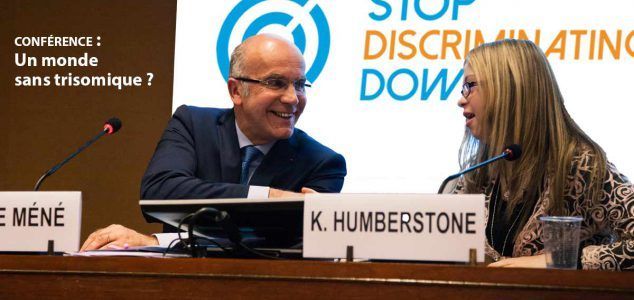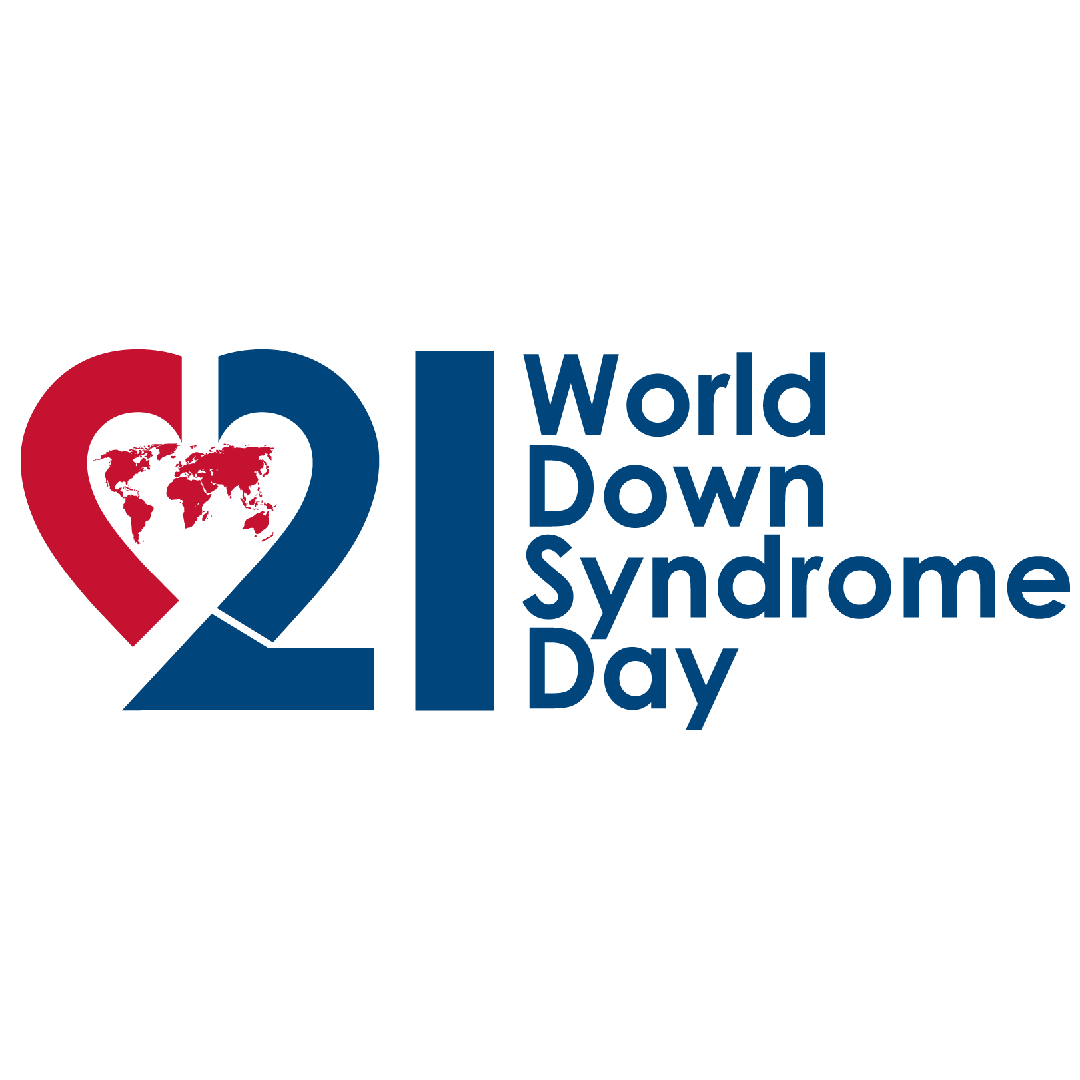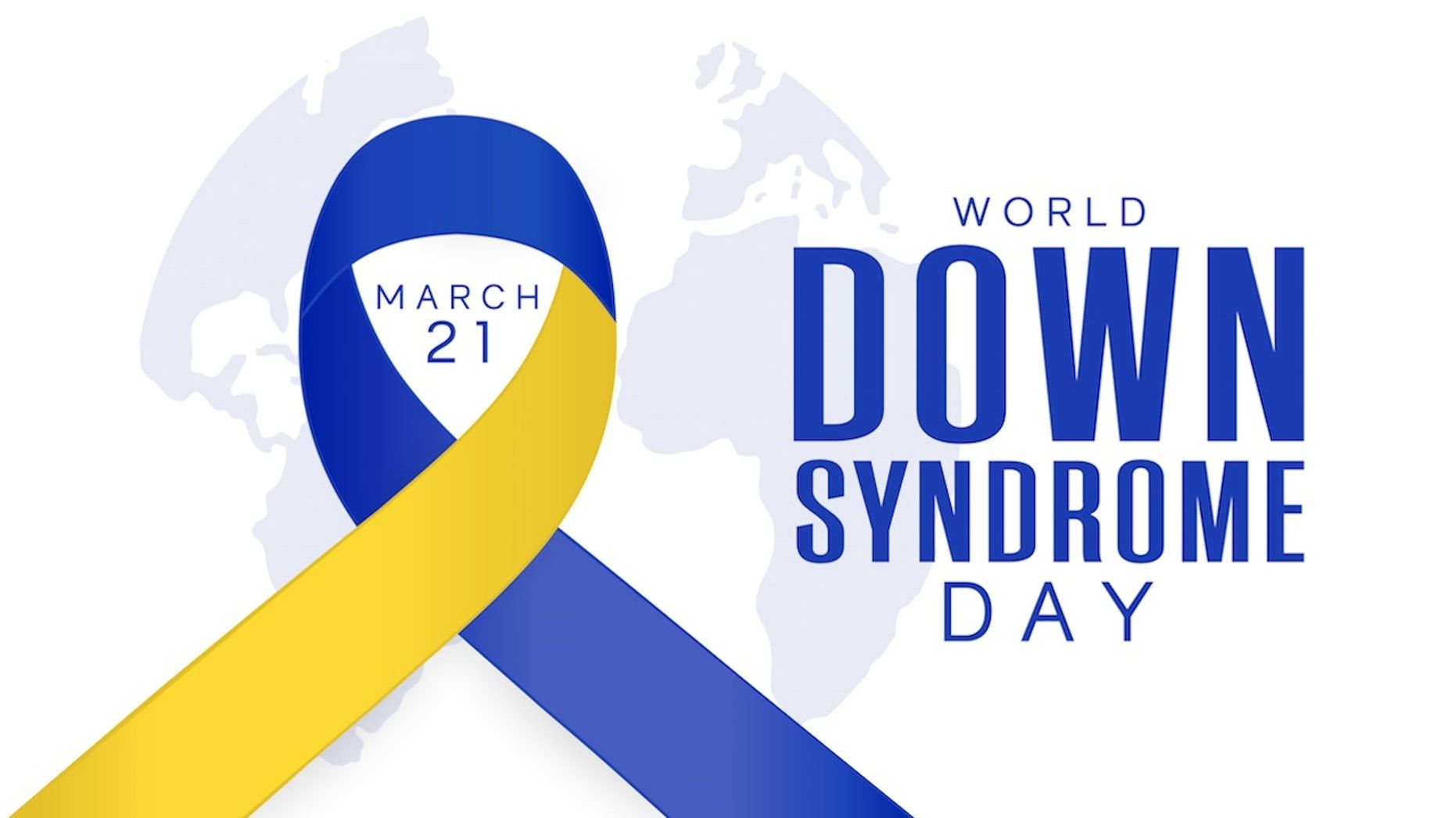
2pm. The room is full and the conference about to start. People are still standing around in the hall. Technicians are busy with their cameras and lenses. Latecomers are still turning up. The speakers take their seats. French, Swiss, but also English, Polish and Dutch settle in. Children with Down Syndrome can be spotted in their mother’s arms. Quite an unusual audience for a conference held at the United Nations in Geneva. But then so is the conference.
Today is March 2nd 2017, the day before the World Down Syndrome Day. The Jérôme Lejeune Foundation, in partnership with the Order of Malta and the NGO ADF-international, has organized under the label Stop Discriminating Down a conference on the mass elimination of children with Down Syndrome before they are born and on the arrival of a new non-invasive prenatal test.
The objective of this conference, A world without Down Syndrome?, is to raise awareness in the United States on the violation of human rights perpetrated in many western countries due to health measures that lead to mass elimination. The new technique, which enables doctors to detect Down Syndrome in embryos at an early stage of pregnancy, using a simple blood test taken from the mother, is about to make things worse.
If this new test was to be introduced in the health system, and therefore generalized, as it is already the case in some countries, the consequences on future babies with Down Syndrome are easy to foresee. To be clear, this would mean developing a means to wipe out the Down Syndrome population.
Already, in England, 90% of mothers end their pregnancy if the test for Down Syndrome comes back positive. In France, this rate reaches 96% and in Denmark 98%. Soon, in some countries, the Down Syndrome population will be facing extinction by lack of new births.
The conference is about to begin; Michel Veuthey, the permanent observer of the order of Malta to the United Nations, is the first to speak. He reminds his audience of the importance of the theme and thanks the United Nations for allowing them to organize the meeting.
The floor is then given to Clotilde Noel, adoptive mother of a daughter with Down Syndrome and author of two books on the subject. She has brought her along and offers a moving testimony about adopting her. Through her experience, she discovered that Down Syndrome was no monstrosity, contrary to what people often believe. Only the idea one has of it can turn it into one: “Everyday Mary teaches us that our role is to love her the way she is”. Opening up to the gift of this new life, it is not long before Clotilde realizes disability is only an illusion, like some sort of deformed shadow hovering over our imagination.
“Of course”, she says, “we had to rethink our daily life when Marie turned up. We had to think about the many appointments with specialists to help her grow up; Of course, our lives have changed but who can say their life remained the same after becoming a parent?”
She then calls upon all states to take on their responsibilities regarding Down Syndrome and NIPT: “We need the State to be in line with us, we need to be protected by laws. Quite the opposite, the State is becoming our enemy number 1 by destroying all our efforts combined over the years.” She wonders: “How can we hope to include children with Down Syndrome if, from the start, almost all children with Down Syndrome are eliminated via NIPT? How can we expect care and research to progress properly?
She ends her talk with a strong tribute to these children who, although different -but then are we not all different from one another? – offer us great lessons of life every day: “These children are the missing key to all people who think too much to live or live too much to think. Those who forget to listen to their heart beating. Those who have everything they need on a material level, but are not satisfied, who are always running after what they are missing. With these kids, you always have everything you need.”
The moderator of ADF-International, Rubén Navarro, then steps down to welcome Kathleen Humberstone and her mother Denise.
Kathleen has Down Syndrome. Raised by loving parents, she is bubbling with projects. Her dream of becoming a model might come true. She also intends to get married to her boyfriend. For her, as for her mother, the idea of prenatal testing is unbearable. “I defy anyone currently promoting the test to come and meet adults with Down Syndrome, such as my daughter Kathleen. I dare them to watch them in the eye and tell them face on that their life is less precious than theirs” were Denise’s final words.
It is then Peter Harteveld’s turn. He is a 33-year-old young adult with Down Syndrome, and lives and works in Holland. He insists on how sad he felt when he sensed his life was not worth as much as others’. “But”, he adds, “he is happy with his life and fulfilled social life.”
Jean-Marie Le Méné, president of the Jérôme Lejeune Foundation, went over the philosophical underpinnings of the eugenic approach concerning unborn children with Down Syndrome. He insists on how this behavior is approved by the liberal economic and political system. This system, relying on no existing exterior or superior norm, forbids as a founding principle to have any principles and to impose on an individual such or such conception of life”. Mr Le Méné adds that this system leads the State to regulate all behaviors through law, even if they seem contradictory because it is enable to resolve them coherently. We end up having a double evolution pulling in two opposite directions: once a child with Down Syndrome is born, progress means inclusion and putting the person before disability; before birth, however, progress means exclusion and putting disability before the person. He concludes by asking all democracies to recognize the “unwritten superior laws which stand for themselves”. If they do not, “the permanent genocide of children with Down Syndrome before birth” will continue.
Next, Dr. Vargas reminds the audience of the decrease, over the last 30 years, in the number of newborn babies with Down Syndrome due to the development of prenatal testing. She shares the means doctors have to break the news of the birth of a child with Down Syndrome to the parents. Among other things, they try to reassure them about their child’s disability and put them in contact with support groups. Alternative solutions concerning the help provided to young mothers and their newborn children do exist and are supposed to reduce the number of abortions.
Alexandra Thompson concludes the conference going over the objectives of the mobilization Stop Discriminating Down. She insists on the fact that children with Down Syndrome have the same rights as others, and have the same value. Promoting prenatal testing while encouraging women to abort means that the lives of children with Down Syndrome are less valuable in the eyes of society. She calls upon all states to stop discrimination based on genetic predispositions.
The audience is then given the opportunity to react. Charlotte Fien has something very strong to say: “Do not murder us before birth. People like me have the right to live”. This young teenager living with Down Syndrome, gives a poignant message creating a parallel between the Nazi’s will to eradicate a certain type of people and the current testing which will have the same consequences.
The many people present were attentive to the very end. Representatives of States’ permanent missions were also present. Spain, Poland, Canada, Colombia and even Hungary and the Holly See came to listen attentively to the requests made by these disabled people and their parents. All families who rarely receive the necessary support from the State.
This conference came as an opportunity to approach the consequences of prenatal testing for Down Syndrome from the angle of human rights. Thanks to the testimonies and expertise given, the audience was able to understand how dangerous such a device can become when a state decides to generalize, systematize and develop it. It particularly endangers the future of Down Syndrome people, but also humanity in general.





